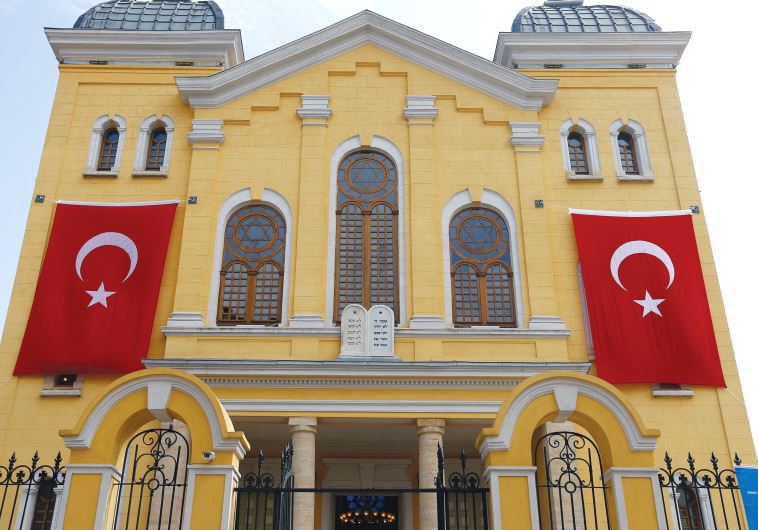The Jewish People between the Ottoman Empire and Turkish Republic
As a Turkish citizen with a conscience, I am longing for days when the Jewish minority will become an accepted part of society.
 TURKISH FLAGS hang on the facade of the restored Great Synagogue before a re-opening ceremony in Edirne, in 2015.
TURKISH FLAGS hang on the facade of the restored Great Synagogue before a re-opening ceremony in Edirne, in 2015.